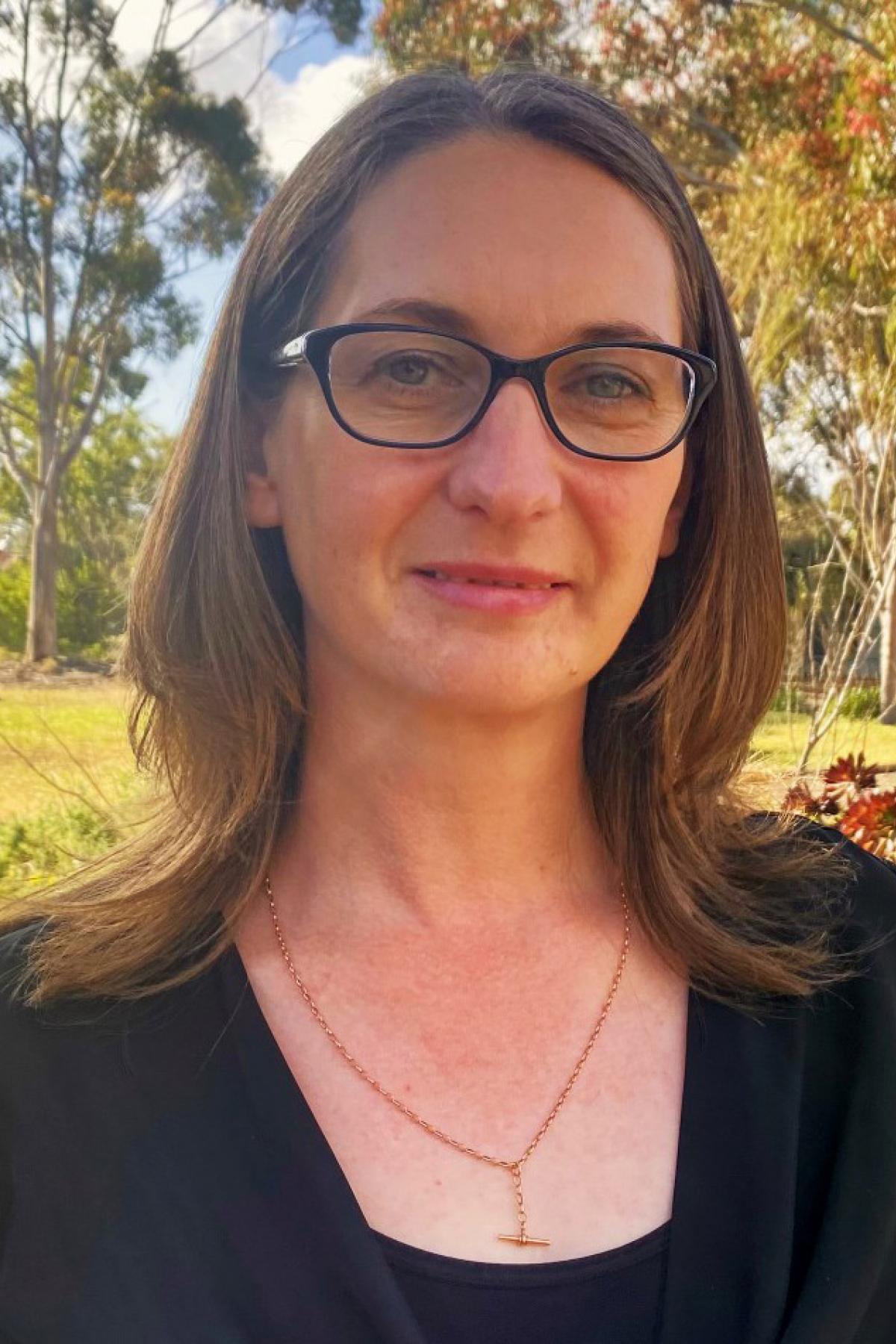Workshops
Select from a range of workshops designed to showcase examples of best practice, enhance the use of educational technologies and provide opportunities to share approaches to student learning. Workshops are peer-led and/or feature specialists from Learning Enhancement and Innovation (LEI).
Are you new to teaching or teaching at Adelaide?
In addition to the wide range of workshops, sessions and online modules available, new teaching staff are required to complete the Introduction to University Teaching within three years of commencing at the University of Adelaide. Find out more about this online course and the face-to-face sessions designed to support you.
The learning platform, MyUni, enables communication and collaboration between you and your students and provides a platform for accessible learning for all students. Learn how to optimise your use below.
-
Introduction to University Teaching
The ADEPT program supports academic and professional staff who are new to teaching or new to teaching at the University of Adelaide in the following two ways:
MyUni course for continuing & fixed-term staff with teaching responsibilities (online/ self-paced)
In this module, you will reflect on your experiences as both a student and educator in order to inform your own approach to teaching within the contemporary higher education context. You will explore key principles in the design of learning and student-centred approaches to enabling active learning for the diverse student cohort. You can self-enrol at any time.
Introduction to University Teaching (Synchronous Zoom session)
This is an opportunity for you to discuss active, inclusive and digitally-enhanced approaches to learning and teaching with peers. This course will be advertised at various times of the year. Please contact us to reserve your place for the next session or keep your eye out for regular updates to this page.
If you are a casual staff member with teaching responsibilities, please ask your School contact about localised induction opportunities.
-
Learn how to optimise your use of the MyUni digital learning platform
Support is also available in the use and and optimisation of the MyUni digital learning platform.
If you are new to using MyUni or would like a general overview, you can also enrol into the Introduction to MyUni self-paced online course for a general overview of how to use MyUni at the University of Adelaide.
Learn how to use MyUni, set up pages and assignments, and understand MyUni minimum requirements, with the MyUni foundations for teaching staff - introduction workshop.
ADEPT
The Adelaide Development Program for Educators and Professionals who Teach (ADEPT) is peer-led professional learning for academic and professional staff in teaching, and support for teaching roles. It showcases examples of good practice and provides opportunities to share approaches to, and the challenges, in enhancing student learning.
-
What are the benefits of participating in ADEPT Activities?
ADEPT enables colleagues to share their challenges and innovations with peers and to discuss how to effectively translate evidence-based and inclusive teaching practices into discipline specific learning environments.1
Participant feedback since 2020 has shown that the opportunity to hear about the teaching practice of peers is highly valued and all ADEPT activities are designed with social learning principles in mind. 2
Testimonials
I have participated in several ADEPT modules during 2021, and each time have learned about new tools, new methods, and new ways of thinking about teaching. This, combined with the opportunity to meet and chat with fellow staff dealing with many of the same teaching challenges, has been a real highlight of the ADEPT program. All this has been made possible through the dedication of the ADEPT teachers, which has been a significant motivator for engaging with the modules and furthering my own professional development as an educator; I cannot speak about them highly enough. I would thoroughly recommend the ADEPT program to anyone who has a teaching role, whether it is giving just a few lectures to teaching across an entire course - there is benefit to be gained from engaging with one or more of these modules.
Dr James Botten, School of Biological Sciences
I liked how the ADEPT team modelled good practice - pre-reading/tasks, engaged us with multiple break out rooms with colleagues and specific tasks to do in those rooms, post-course tasks. I enjoyed there being a diversity of participants and the opportunity to hear from everyone but work with those at a similar level/amount of experience to me.
Participant, anonymous feedback survey
References
1 Boud, D., & Brew, A. (2013). Reconceptualising academic work as professional practice: Implications for academic development. International Journal for Academic Development, 18(3), 208-221.
2 Lave, J., and E. Wenger. (1991). Situated Learning: Legitimate Peripheral Participation. New York: Cambridge University Press. Gibbs, G. (2013). Reflections on the Changing Nature of Educational Development. International Journal for Academic Development 18 (1): 4–14.
Certificates
Participants who complete courses through MyUni will receive non-award certificates of completion for their professional learning records.
Certificates of attendance can be provided to participants who attend at least 75% or more of a synchronous session. This is to ensure that you have benefited from the peer learning available in the sessions. Contact us to request a certificate.
-
Workshop information and registrations
Workshop title Date Time More information Prep for Integrity
Fri 9 Feb, 2024 12.00 - 1.30pm Registrations closed Check for Integrity
Fri 16 April, 2024 12.00 - 1.30pm More information and registrations More sessions available soon!
-
Academic Leads

Dr Matthew Arnold is a Lecturer and Education Specialist within the Adelaide Medical School. Matt has multiple roles within the School, co-coordinating the First-year courses of the Bachelor of Medical Studies/Doctor of Medicine program, leading the Scenario-Based Learning (SBL) curriculum across Years 1-3, and co-coordinating a Year 6 elective rotation involving near-peer teaching in medical education. Matt is a graduate of Adelaide Medical School, and after working clinically as a doctor upon graduating, he transitioned into a full-time academic role to follow his passion for medical education.

Associate Professor Beth Loveys is an Education Specialist & member of the Adelaide Education Academy at The University of Adelaide. Beth aims to inspire & engage students using blended and active learning pedagogy & creates a supportive & caring learning environment where students comfortable to ask questions. She holds several leadership positions at the University & is a Senior Fellow HEA (UK). Beth’s success has been recognised by: Australian Award for University Teaching, Office of Learning and Teaching Citation for Outstanding Contribution to Student Learning, SA Science STEM Educator finalist, Stephen Cole the Elder Award for Excellence & Vice Chancellors and Presidents Award for Excellence & the Australian Awards for University Teaching.

Dr Hayley McGrice is an enthusiastic Education Specialist who has provided exemplary leadership in learning and teaching across the University of Adelaide through her sustained work in the Communities of Practice, the ADEPT professional development program, and more recently as the Associate Dean Learning Quality and Student Experience in the Faculty of SET. Hayley is passionate about improving the student experience through inclusion of students as partners and actively listening to the student voice at all levels of university operations and governance. Hayley was recognised for her outstanding leadership and practice in 2023 when she received a Stephen Cole the Elder Award for excellence in the leadership, support and enhancement of teaching.

Dr Danijela Menicanin is the Associate Dean of Learning Quality and Student Experience and an Education Specialist at the Faculty of Health and Medical Sciences, The University of Adelaide. As an educator, she strives to influence change, promote discovery and innovation and cultivate an enhanced student experience. Her role is focused on implementation of innovative approaches and methodologies, and development of support resources, inspire excellence, reinforce academic advancement and cultivate creativity and in the current, dynamic, technology driven culture of learning and teaching.
Empowered Educators
In 2024 ADEPT will be offering the Empowered Educators series to support teaching quality and the facilitation of student learning in the age of Artificial Intelligence. The focus will be on the application of evidence-based, fit for purpose teaching approaches which engage and motivate students, enable constructive relationships, and are continuously improved through reflective and scholarly practice[1].
-
Program Information
All teaching staff will be invited to a learning series which will enable a reflective cycle of evidence-based enhancements to student learning. The multimodal design of this series provides you with a variety of ways engage and learn. The series will comprise of three workshops complemented by asynchronous resources and activities. You can choose one (or more!) of the three themed streams and can opt to join part of the workshops online or engage with the entire session on-campus.
The three themes for staff to engage with are
- Enabling belonging, connectivity & the relationships which enhance learning.
- Designing and providing feedback for learning.
- Developing active, critical, deep thinkers.
The purposeful use of technology to enhance learning is embedded across all of these themes.
[1] Chalmers, D. (2019). Recognising and rewarding teaching: Australian teaching criteria and standards and expert peer review. Canberra: Australia; O'Leary, M. (2017). Teaching excellence in higher education: Challenges, changes and the teaching excellence framework. In A. French & M. O'Leary (Eds.), Teaching excellence in higher education: Challenges, changes and the teaching excellence framework. ProQuest Ebook Central: Emerald Publishing Limited; Wood, P. (2017). From Teaching Excellence to Emergent Pedagogies. In F. Amanda & M. O'Leary (Eds.), Teaching Excellence in Higher Education: Challenges, Changes and the Teaching Excellence Framework (pp. 39-74). ProQuest Ebook Central: Emerald Publishing Limited.
-
Theme: Enabling belonging, connectivity & the relationships which enhance learning
[1] Chalmers, D. (2019). Recognising and rewarding teaching: Australian teaching criteria and standards and expert peer review. Canberra: Australia; O'Leary, M. (2017). Teaching excellence in higher education: Challenges, changes and the teaching excellence framework. In A. French & M. O'Leary (Eds.), Teaching excellence in higher education: Challenges, changes and the teaching excellence framework. ProQuest Ebook Central: Emerald Publishing Limited; Wood, P. (2017). From Teaching Excellence to Emergent Pedagogies. In F. Amanda & M. O'Leary (Eds.), Teaching Excellence in Higher Education: Challenges, Changes and the Teaching Excellence Framework (pp. 39-74). ProQuest Ebook Central: Emerald Publishing Limited.
A sense of belonging and connectedness is crucial for learning. In advocating for a relationship-rich approach to education, Felton and Lambert (2020) identify four guiding principles:
- All students must experience genuine welcome and deep care
- Relationships are a powerful means to inspire all students to learn
- All students must develop webs of significant relationships within the University
- All students need meaningful relationships to help – and to challenge them - to explore the big questions of their lives.
Learning environments and experiences must enable students to build connection with their subject, with us, with their peers, and with their evolving sense of themselves.
Felten, P., & Lambert, L. M. (2020). Relationship-rich education: How human connections drive success in college. JHU Press.
Baik, C., Larcombe, W., Wyn, J., Allen, L., Brett, M., Field, R., . . . Brooker, A. (2017). The University of Melbourne: ID14-3905. Dept of Education and Training Australia.
Registrations open soon
Workshop 1A - Tuesday 4 June 2024. 10am - 12pm, Barr Smith South 1062
Workshop 2A - Monday 1 July, 2024. 10am - 12pm, Barr Smith South 2051
Workshop 3A - Tuesday 5 November, 2024. 10am - 12pm, Barr Smith South 2052
-
Theme: Designing and providing feedback for learning
Meaningful, timely and actionable feedback enables students to be actively engaged in their learning. Effectively designed formative feedback develops students’ metacognition and self-regulation and develops their capability to independently evaluate their own and other’s work. A dialogic approach to feedback which explicitly enhances students’ feedback literacy skills supports their development of knowledge, understanding, skills and attributes.
Carless, D. (2020) Introduction: learner-focused feedback practices and feedback literacy. In On Your Marks: Learner-focused Feedback Practices and Feedback Literacy. York: AdvanceHE
Henderson, M., Phillips, M., Ryan, T., Boud, D., Dawson, P., Molloy, E., & Mahoney, P. (2019). Conditions that enable effective feedback. Higher Education Research & Development, 38(7), 1401- 1416).
Tai, J., Ajjawi, R., Boud, D., Dawson, P., & Panadero, E. (2018). Developing evaluative judgement: enabling students to make decisions about the quality of work. Higher education, 76, 467-481Registrations open soon
Workshop 1B - Wednesday 5 June 2024. 1pm - 3pm, Barr Smith South 2051
Workshop 2B - Tuesday 2 July, 2024. 10am - 12pm, Barr Smith South 2051
Workshop 3B - Wednesday 6 November, 2024. 10am - 12pm, Barr Smith South 2051
-
Theme: Developing active, critical, deep thinkers
Active learning is a robust pedagogy whereby students participate in the process of learning in an environment which encourages critical and creative thinking, metacognition, self-regulation and meaningful engagement. In a time of fast and ubiquitous information and the rising use of Artificial Intelligence, students’ ability to use their brains’ executive function to critically integrate new information with prior knowledge is crucial. Executive functioning, including deep thinking, is developed through practise which increases in sophistication and challenge the more students engage. Evidence suggests that students are more likely to take a deeper and more systematic approach to learning if educators focus on achieving conceptual change through student-centred strategies rather than the presentation of content. The investigation of high impact approaches has also shown that active learning approaches are effective, regardless of the delivery method used or size of class.
Elmore, R. (2018). Design as Leaning Learning as Design. In R. Ellis & P. Goodyear (Eds.). Spaces of Teaching and Learning Integrating Perspectives on Research and Practice. Springer: Singapore, pp.47-62, https://doi.org/10.1007/978-981-10-7155-3
Kilgo, C.A., Ezell Sheets, J.K. & Pascarella, E.T. (2015). The link between high-impact practices and student learning: some longitudinal evidence. High Education, 69, 509–525. https://doi-org.proxy.library.adelaide.edu.au/10.1007/s10734-014-9788-z
Matsushita, K. (2018). An invitation to active learning. In K. Matsushita (Ed). Deep active learning: Toward greater depth in university education. Springer: Singapore. pp 15-34.Registrations open soon
Workshop 1C - Thursday 6 June 2024. 10am - 12pm, Barr Smith South 2032
Workshop 2C - Thursday 4 July, 2024. 10am - 12pm, Barr Smith South 2051
Workshop 3C - Thursday 7 November, 2024. 10am - 12pm, Barr Smith South 2052
Designing for Learning
The Designing for Learning workshops, facilitated by Learning Enhancement and Innovation (LEI) for academic staff, focus on designing learning for blended and online environments. These workshops cover a diverse range of topics through guided activities and hands-on exercises.
-
Workshop information and registrations
For more information about a workshop, select its title.
This will provide you with information on learning outcomes, mode of delivery, and scheduled dates. You will also be able to register using this link.
Workshop title - select for more information and to register Duration & delivery method Month offered 3 hrs
Face-to-faceFeb, Apr, Jun, Jul, Sep Design empowering collaborative learning experiences 3 hrs
Face-to-faceFeb, Mar, June, Jul Design multimedia for teaching and learning to optimise cognitive load 1.5 hr
Online (MS Teams)Mar, May Develop holistic assessments, rubrics and feedback 3 hrs
Face-to-faceJan, Feb, Jun Develop robust teaching evaluation methods - eSELTs and beyond 3 hrs (if attending both Pt 1 & Pt 2)
Face-to-faceApr, Jul, Sep, Oct, Nov, Dec Refine learning outcomes for existing courses (existing UoA courses only) 1 hr
Online (MS Teams)Jan, Mar, Nov Two sides of popular media - films and videos in teaching and learning 1 hr
Online (MS Teams)May, Jul Use generative-AI to boost your assessment design and feedback 1.5 hr
Online (MS Teams)May, Aug Write effective multiple-choice quizzes with AI-assistance 1 hr
Online (MS Teams)Mar, May Can't find what you're looking for? Contact us for a customised workshop.
Educational Technology
The Educational Technology workshops are designed for academics and facilitated by Learning Enhancement and Innovation (LEI). These workshops provide valuable insights and practical guidance on utilising educational technologies to enhance the student learning experience.
-
Workshop information and registrations
For more information about a workshop, select its title.
This will provide you with information on learning outcomes, mode of delivery, and scheduled dates.
You will also be able to register using this link.
Can't find what you're looking for? Contact us for a customised workshop.
Feel free to contact us for more information or for a discussion concerning your professional learning needs.
